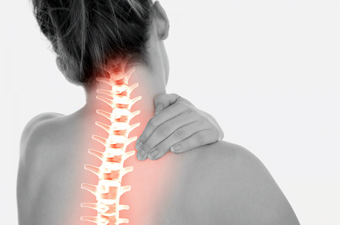
Protecting Women’s Bone Health
May is National Osteoporosis Awareness and Prevention Month—a time dedicated to educating all women about osteoporosis, a condition that weakens bones and increases the risk of fractures. Although often associated with aging, maintaining bone health is important at every stage of life. At Women’s Health Associates, a trusted provider of OB/GYN services in Kansas City, our mission is to empower women through personalized, comprehensive care that supports every aspect of their health—including bone strength and lifelong wellness.
Why Osteoporosis Awareness is Essential for Women's Health
Osteoporosis is often called a "silent disease" because it develops slowly and without symptoms—until a fracture occurs. Many women don’t realize they’re at risk until they face serious issues with mobility, independence, or chronic pain. Early awareness, regular screenings, and preventive care are key to protecting your health and quality of life. “The earlier we identify risk factors, the more we can do to protect bone health and prevent complications down the road,” says Dr. Amy Giedt. Understanding the warning signs and taking action now can make a meaningful difference in your long-term wellness.
This month-long initiative targets three core objectives:
- Educate About Osteoporosis:
Understanding osteoporosis—how it develops and how to prevent it—is a cornerstone of women’s wellness. Reduced bone density can be caused by aging, genetics, lifestyle habits, and nutritional deficiencies. Women over 50 are especially at risk due to hormonal changes that occur after menopause. - Encourage Regular Bone Health Screenings:
Proactive ob care, including bone density tests such as Dual-Energy X-ray Absorptiometry (DEXA), is vital. Regular screenings can help detect early signs of bone loss, especially for women over 65 or those with significant risk factors. - Promote Effective Lifestyle Modifications:
Positive lifestyle changes—like a balanced, nutrient-dense diet, regular weight-bearing exercise, and strategic medical interventions—can dramatically enhance bone strength and overall wellness.
Important Osteoporosis Facts for Every Woman
- Over 10 million Americans are currently affected by osteoporosis, and an additional 44 million are at risk due to low bone density.
- Women are more vulnerable to osteoporosis than men, with postmenopausal hormonal changes accelerating bone loss.
- Fractures related to osteoporosis, particularly in the spine, hip, and wrist, can severely impact mobility and quality of life.
- Prevention is possible through a combination of informed lifestyle choices, early detection, and appropriate medical treatment.
Factors That Heighten Women’s Risk for Osteoporosis
Women encounter several risk factors that can contribute to osteoporosis, including:
- Hormonal Changes:
Declining estrogen levels after menopause accelerate bone loss. - Bone Structure Differences:
Women tend to have smaller, thinner bones compared to men, making them more susceptible to fractures. - Nutritional Deficiencies:
Inadequate intake of calcium—a mineral essential for bone health—can increase risk. - Family History and Lifestyle Factors:
Genetics, a sedentary lifestyle, smoking, and excessive alcohol use are linked to lower bone density.
Practical Tips for Enhancing Bone and Overall Wellness
Achieving and maintaining optimal bone health is achievable through a blend of diet, exercise, and lifestyle modifications:
- Adopt a Calcium-Rich Diet:
Embrace foods such as dairy products (milk, yogurt, cheese), leafy greens (kale, spinach, broccoli), nuts, and fortified foods (orange juice, cereals). - Boost Your Vitamin D Levels:
Ensure regular sun exposure and include vitamin D-rich foods (salmon, eggs, fortified milk) in your diet. Supplements can also be considered after a consultation with your healthcare provider. - Engage in Weight-Bearing and Resistance Exercise:
Incorporate activities like walking, jogging, dancing, strength training, yoga, and Pilates to improve bone density and balance. - Avoid Risky Habits:
Steer clear of smoking and excessive alcohol consumption, as these can further deteriorate bone strength. - Keep Up with Routine Screenings:
Regularly discuss your bone health with your healthcare provider and consider periodic bone density testing if you have risk factors.
Taking Charge of Your Health and Wellness
At Women’s Health Associates, we’re committed to supporting women’s health and wellness at every stage of life. As a leading OB/GYN clinic in Kansas City, our team can guide you on osteoporosis screening, and treatment, if needed. Prioritizing bone health through nutrition, exercise, and preventive screenings can make a lasting impact on your well-being. “Supporting bone health through all stages of life is key to helping women stay active, independent, and thriving,” says Dr. Amy Giedt.
This National Osteoporosis Awareness and Prevention Month, take a proactive step toward stronger bones and better health. To schedule a bone health consultation or speak with a member of our care team, call us at 913-677-3113. With two convenient Kansas City area locations, Women’s Health Associates is here to support your total health—at every stage of life.
This article is for informational purposes only and does not constitute medical advice. Please consult a healthcare professional for personalized guidance.
